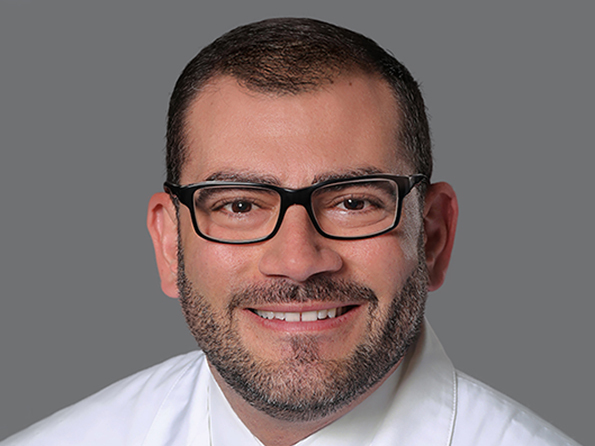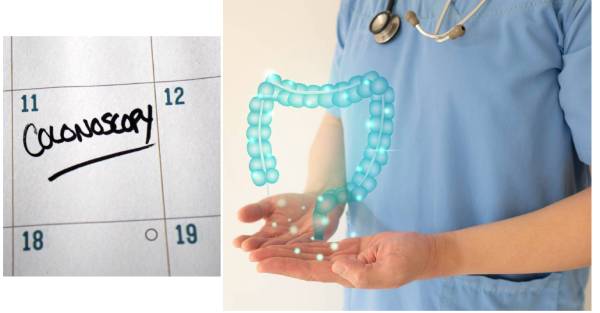
Education
Experts Share Latest News on Cervical Cancer Prevention and Treatment
5 min. read
Baptist Health Miami Cancer Institute
Cervical cancer usually develops slowly over time. That makes Pap test screening, a procedure during which cells are collected from the surface of the cervix, a particularly powerful tool. The Pap test can detect cancer at an early stage, when treatment tends to be most successful. Not only that, but it can also detect precancerous abnormalities that can then be treated to prevent cancer from developing.
Since almost all cases of the cervical cancer are caused by human papillomavirus (HPV) infection, vaccines that protect against the virus could eventually prevent the vast majority of cases.
But even with tools such as HPV vaccination, screening and effective procedures to remove precancerous and cancerous cells, people are still getting cervical cancer — and dying from it. It’s an important message during Gynecological Cancer Awareness Month, held annually in September.

John Paul Diaz, M.D., chief of gynecologic oncology at Baptist Health Miami Cancer Institute
“Cervical cancer is preventable. It’s one of the few cancers we can eradicate,” says John Paul Diaz, M.D., chief of gynecologic oncology at Baptist Health Miami Cancer Institute. “With the screening programs available to women today — utilizing Pap smears and HPV testing, in combination with the HPV vaccine — we should be able to completely eliminate this disease in the United States.”
Cervical cancer was once a leading cause of cancer death for women in the United States, but that picture has shifted, with statistics reflecting a 33 percent decrease in deaths over the past three decades.
For those who develop cervical cancer, the prognosis has improved with such breakthrough treatments as robotic-assisted surgery with tumor containment and immunotherapy for patients with recurrent disease to help their bodies outsmart cancer. Dr. Diaz has been involved — and continues to lead — clinical trials that push the boundaries of cancer care.
“I look forward to a day when we can eradicate women’s cancers once and for all,” says Dr. Diaz, who also heads the gynecological cancer team at the Baptist Health’s wellness and medical complex in Plantation.
Fighting Back Against Cervical Cancer
According to the U.S. Centers for Disease Control & Prevention (CDC), some 14,000 women will be diagnosed with cervical cancer in 2023, and about 4,000 will die from the disease.

Thomas Morrissey, M.D., director of gynecologic oncology at Lynn Cancer Institute at Boca Raton Regional Hospital
Thomas Morrissey, M.D., director of gynecologic oncology at Lynn Cancer Institute at Boca Raton Regional Hospital, also part of Baptist Health, notes that early-stage cervical cancer has few warning signs, which is why it’s especially important for women to have regular check-ups and screenings.
Those who do have warning signs sometimes wait before seeking care because the symptoms are vague, Dr. Morrissey says.
“While it’s not common for women younger than 30 to get cervical cancer, unfortunately we do occasionally see it,” Dr. Morrissey says. “Abnormal bleeding is a general symptom of so many other gynecological problems, and when you are young and of reproductive age, sometimes periods can be irregular. Stressors in life can also affect your period. We often see similar bleeding symptoms in women with uterine fibroids, polycystic ovary syndrome or other hormone dysfunctions.”
Early detection of cervical cancer is key to survival. Dr. Morrissey urges all women — even those who don’t have a sexual partner or those who are elderly — to speak to their physician or gynecologist about the appropriate Pap smear schedule for them. It’s also important to note that cervical screening is still needed for women who have been vaccinated, to help prevent the cervical cancers not covered by the HPV vaccine.
“The big message is prevention, prevention, prevention,” he says.
Understanding Cervical Cancer and Its Treatment
HPV (human papillomavirus) is estimated to cause 93 percent of cervical cancers in the United States. About 80 percent of women will get at least one type of HPV at some point in their lifetime. Generally, it is spread through skin-to-skin contact during vaginal, oral or anal sex. The virus usually has no symptoms and goes away on its own, although some types can lead to cancer later on.
The HPV vaccine that was introduced in 2006 has helped reduce early-stage cervical cancer among younger women, Dr. Diaz says, but middle-aged and older people who were never vaccinated are still at risk. Cervical cancer is most often diagnosed in women aged 35-44, but more than 20 percent of cases occur in women over 65, according to the American Cancer Society.
While the decline in early-stage cervical cancer is good news, there has been an alarming spike in advanced, or metastatic, diagnoses in recent years. “Most cases of advanced cervical cancer are seen in patients who haven’t had a Pap smear for five years or more,” Dr. Diaz says.
The American College of Obstetrics & Gynecology encourages women to begin cervical cancer screenings at age 21.
When detected early, cervical cancer is typically curable. Treatment options include surgery, radiation, chemotherapy and immunotherapy — based on the kind of cancer, the patient’s age, and how far it has spread, and whether the patient hopes to have biological children.
Dr. Diaz is leading a number of studies, including one sponsored by the state of Florida to explore the efficacy of a combination of chemotherapy and PARP-inhibitors to boost the body’s ability to fight recurrent cervical cancer cells. “We’ve had really encouraging results, and now we’re trying to see if we can make those results even better,” he says.
At an international meeting of surgeons, Dr. Diaz recently presented a modified surgical technique that better contains early-stage cervical cancer during minimally invasive robotic surgery. Miami Cancer Institute also is participating in a clinical trial comparing survival rates for patients who undergo robotic-assisted surgery versus open radical hysterectomy for early-stage cervical cancer. Robotic-assisted procedures can lead to a less pain, quicker recovery and lower risk of infection.
Being Proactive
Even with breakthroughs in treatment, prevention is always a better alternative to a cure, says Dr. Morrissey, a strong advocate for the HPV vaccine. The CDC recommends the vaccine for girls and boys at ages 11 to 12. Teens and young adults also should be protected if they don’t receive the shots at an earlier age. Vaccination may also be appropriate for some adults up to age 45.
“The vaccine is an important cancer prevention tool,” Dr. Morrissey says. “Preventing cancer is better than treating it. HPV vaccination provides safe, effective and long-lasting protection.
Healthcare that Cares
Related Stories
View All Articles
Understanding Why Colorectal Cancer Rates are Surging in Adults Under 50
March 20, 2024
4 min. read

